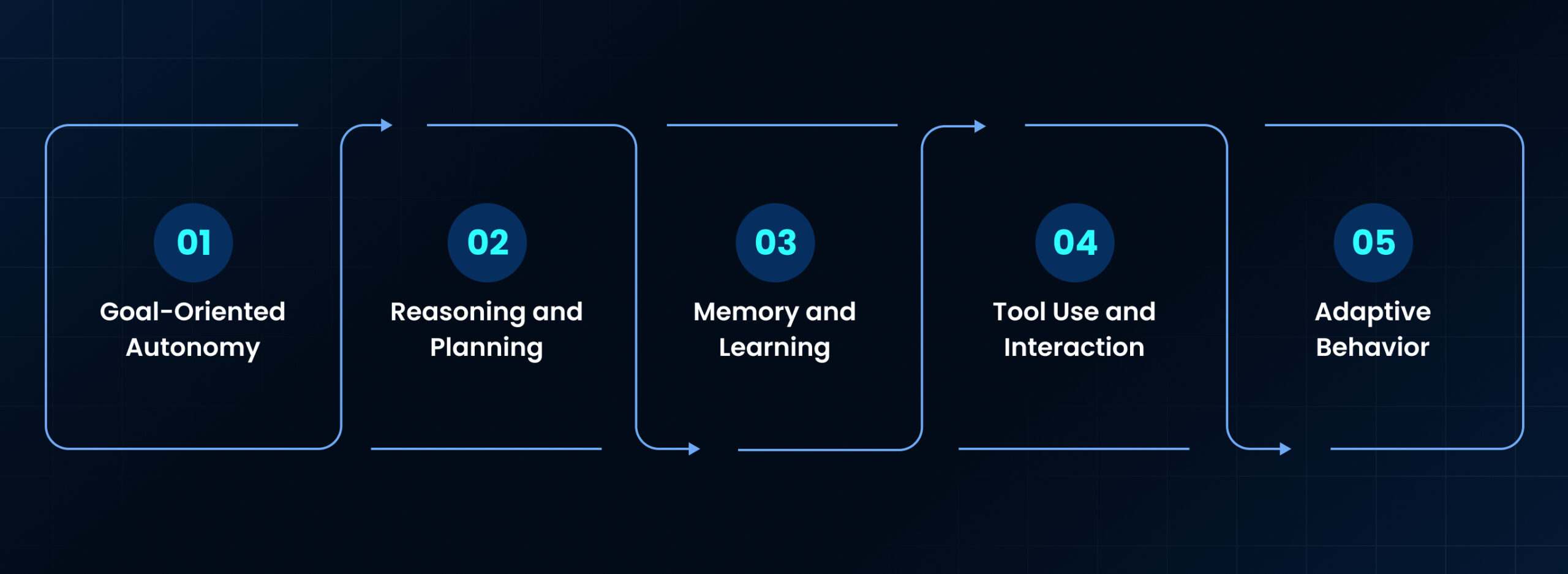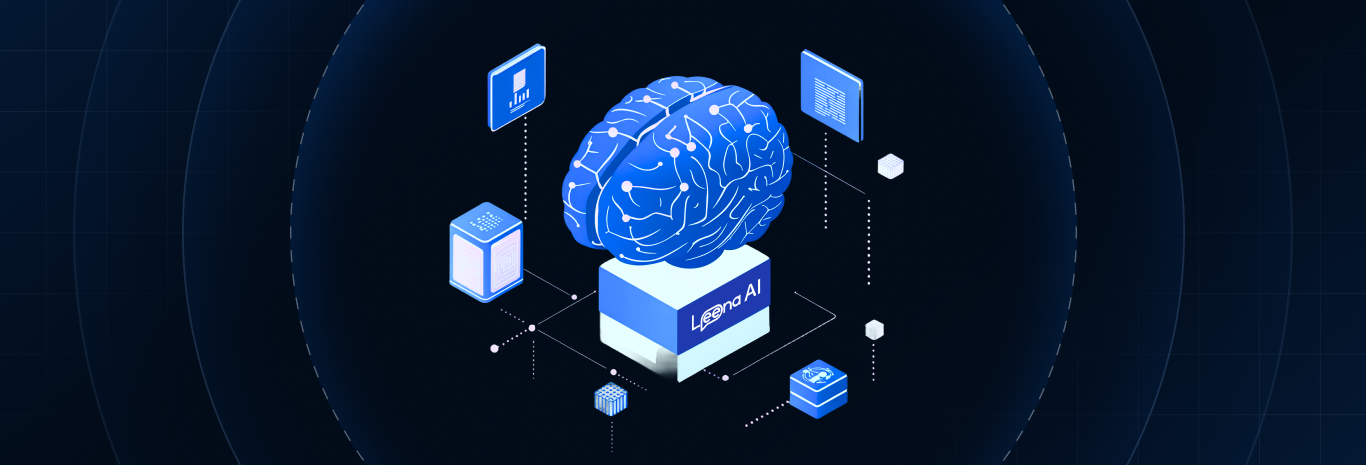Introduction
In the fast-evolving landscape of enterprise technology, terms like “AI” and “automation” are part of our daily lexicon. But as we look towards 2025 and beyond, a new, more profound evolution is taking center stage: agentic AI meaning. This isn’t just about making processes faster; it’s about making them smarter, more proactive, and fundamentally autonomous. For technology leaders overseeing critical systems like employee ticketing in large US companies, understanding the true agentic AI meaning is paramount to staying ahead.
Agentic AI Meaning: What It Truly Means
So, what exactly does agentic AI meaning entail? Think of it this way: traditional automation follows a script. You tell it to do “A,” then “B,” then “C.” Generative AI, while impressive, creates new content based on prompts. Agentic AI meaning goes a significant step further. An agentic AI is a sophisticated digital entity designed to act with purpose and independence. It’s not just following instructions; it’s understanding goals, planning actions, executing those plans, learning from the outcomes, and adapting its approach to achieve a desired result, often without constant human oversight.
Imagine an employee facing a common IT issue, like a slow laptop. Instead of just running a diagnostic script, an agentic AI agent would:
- Understand the Goal: “Fix the slow laptop.”
- Plan: “I need to check system resources, analyze background processes, look for common software conflicts, and possibly suggest a system reboot or cache clear.”
- Execute: It would systematically perform these checks, perhaps interacting directly with the laptop’s operating system.
- Learn & Adapt: If a specific process is repeatedly causing issues across multiple machines, the agent might learn to prioritize checking that process or even flag it for a broader IT team review.
This blend of understanding, planning, execution, and learning is at the heart of the agentic AI meaning.
Key Traits That Define Agentic AI

To fully grasp the agentic AI meaning, let’s break down its defining characteristics, which differentiate it from its AI predecessors:
-
Goal-Oriented Autonomy: Unlike rule-based automation, agentic AI systems are given a high-level goal, not just a series of steps. They then independently determine the best path to achieve that goal.
-
Reasoning and Planning: These agents can analyze complex situations, devise multi-step plans, and even anticipate potential obstacles, much like a human problem-solver.
-
Memory and Learning: Agentic AI isn’t just reacting to the present. It remembers past interactions, learns from successful resolutions and failures, and uses this accumulated knowledge to improve its performance over time. This continuous learning makes it increasingly effective.
-
Tool Use and Interaction: A true agentic AI can interact with various digital “tools” , be it your enterprise resource planning (ERP) system, a ticketing platform, a knowledge base, or even external web services , to gather information and execute tasks.
-
Adaptive Behavior: When faced with unexpected scenarios, an agentic AI can adjust its plan, explore alternative solutions, or, if necessary, identify when human intervention is genuinely required, escalating the issue with rich context.
Agentic vs. Generative AI: A Clear Comparison
While both are advanced forms of AI, it’s important to clarify the distinction, as they often work in tandem.
- Generative AI (like the engines behind sophisticated chatbots that write emails or summarize documents) excels at creating new content based on patterns it has learned from vast datasets. It can draft a response to an employee’s query or generate a knowledge article.
- Agentic AI, on the other hand, uses generative AI as a powerful brain, but its primary function is action. It leverages its generative capabilities to understand context, reason, and communicate, but its ultimate purpose is to act independently to achieve a goal.
Think of it this way: Generative AI can write a brilliant recipe. Agentic AI can then gather the ingredients, follow the recipe, cook the meal, and even adjust the seasoning if it learns your preference. They are complementary, with agentic AI representing the next evolutionary step in actionable intelligence.
Real-World Examples of Agentic AI in Action
To truly appreciate the agentic AI meaning, let’s consider how it’s already beginning to reshape enterprise operations.
- IT Service Desks: An employee’s access to a critical application suddenly stops working. Instead of just creating a ticket, an agentic AI could:
- Diagnose the root cause (e.g., forgotten password, expired license, network issue).
- If a password, prompt for a secure reset and guide the employee.
- If a license, automatically check the license pool and assign a new one.
- If a network issue, run diagnostics and notify the network operations team with precise details.
This autonomous problem-solving eliminates back-and-forth and resolves issues instantly.
- HR Support: An employee needs to update their direct deposit information. An agentic AI could:
- Verify the employee’s identity securely.
- Guide them through the necessary steps or directly update the payroll system.
- Confirm the change and inform the employee.
This provides immediate, secure self-service that traditional chatbots can’t match.
- Finance Queries: A manager has a question about a budget line item. An agentic AI could:
- Access financial dashboards and reports.
- Analyze the data to provide a direct answer.
- If a deeper analysis is required, summarize findings and recommend a human expert for further consultation.
This transforms routine queries into immediate, data-driven insights.
These examples illustrate how agentic AI moves beyond simply answering questions to actively solving problems across various departments, demonstrating the transformative agentic AI meaning.
Why Understanding Agentic AI Matters for Enterprises

For CIOs, CTOs, and Technology Heads, understanding the agentic AI meaning isn’t just academic; it’s a strategic imperative, especially as we look at 2025 trends.
- Elevated Employee Experience: Imagine a world where employees get instant, accurate resolutions to their IT, HR, and Finance queries, 24/7. Agentic AI delivers this by autonomously handling a vast majority of inbound requests, leading to higher satisfaction and productivity.
- Proactive Problem Resolution: Beyond reactive ticketing, agentic AI can continuously monitor systems, identify potential issues before they escalate, and often resolve them proactively. This shifts your operations from putting out fires to preventing them, significantly reducing downtime and business disruption.
- Unlocking Team Potential: By offloading repetitive, high-volume tasks to agentic AI, your expert IT, HR, and Finance teams are freed from the mundane. They can focus on strategic initiatives, complex problem-solving, and innovative projects that truly move the needle for your business. This redefines job roles, making them more engaging and impactful.
- Optimized Operational Costs: The efficiency gains from autonomous problem-solving are significant. Faster resolution times, reduced need for manual intervention, and improved resource allocation translate directly into substantial cost savings.
- Scalability and Resilience: Agentic AI provides an endlessly scalable support mechanism that can handle fluctuating demand without adding proportionate human resources. It also adds a layer of resilience to your operations, ensuring consistent support even during peak times or unexpected events.
In 2025, enterprises that embrace the full agentic AI meaning will be the ones leading their industries, defined by unparalleled efficiency and employee empowerment.
How Leena AI Embodies the Essence of Agentic AI
At Leena AI, we’ve deeply internalized the true agentic AI meaning and have built our platform around these core principles to deliver autonomous resolution for large enterprises. Our intelligent AI agents don’t just answer questions; they act to resolve employee issues across IT, HR, and Finance.
For example, in IT:
- Automated Software Provisioning: An employee needs access to new software. Our agentic AI validates the request against company policies, provisions the software, and confirms installation , all autonomously.
- Account Management: From unlocking accounts to resetting passwords, our agents handle common access issues instantly and securely, freeing up your IT help desk.
- Hardware Troubleshooting: When a monitor isn’t working, our AI guides the employee through diagnostics, logs the issue with context, and can even trigger a replacement order if necessary.
- Knowledge Article Creation: Our agents don’t just use knowledge bases; they can identify gaps, draft new articles, and update existing ones based on recurring issues they resolve.
Leena AI champions the agentic AI meaning by creating a symbiotic relationship between advanced AI and your existing enterprise systems. We provide a platform where AI agents work tirelessly in the background, resolving issues, learning from every interaction, and ensuring your employees get the support they need, precisely when they need it. This empowers your teams to focus on strategic work, while your employees enjoy an unparalleled support experience.
Frequently Asked Questions
What is the core difference between a regular chatbot and an agentic AI?
A regular chatbot primarily converses and provides information based on predefined scripts or simple queries. An agentic AI, understanding the agentic AI meaning, goes beyond conversation to autonomously plan and execute actions to resolve a user’s goal, learning and adapting along the way.
Can agentic AI truly replace human support agents in an enterprise?
Not entirely. Agentic AI is designed to handle the vast majority of routine and repetitive tasks, freeing human agents to focus on complex, nuanced, or highly sensitive issues. It’s about elevating human work, not eliminating it, embodying the collaborative agentic AI meaning.
How secure are agentic AI systems when interacting with sensitive enterprise data?
Security is paramount. Reputable agentic AI platforms are built with enterprise-grade security protocols, robust access controls, and strict compliance measures. They are designed to operate within your existing security frameworks, ensuring data privacy and integrity.
What's the typical implementation timeline for an agentic AI solution in a large company?
Implementation varies based on complexity and integration needs, but with modern platforms, initial deployments can be surprisingly fast. Many solutions offer out-of-the-box capabilities for common use cases, allowing enterprises to see value quickly and expand over time.
How does an agentic AI learn and improve its problem-solving abilities?
Agentic AI systems continuously learn from every interaction and resolution. They analyze successful outcomes, identify patterns, and refine their strategies. When they encounter an issue they can’t solve, they learn from human intervention, embodying the iterative agentic AI meaning.
What departments benefit most from agentic AI within an enterprise?
Departments with high volumes of repetitive inquiries and resolution tasks, such as IT help desks, HR operations, and Finance support, stand to benefit immensely from the autonomous problem-solving capabilities inherent in the agentic AI meaning.
Is agentic AI just a fancy term for advanced automation?
While it involves automation, agentic AI is distinct due to its goal-oriented autonomy, reasoning capabilities, memory, and ability to adapt. It doesn’t just automate steps; it determines the steps needed to achieve a goal, a key aspect of the agentic AI meaning.













